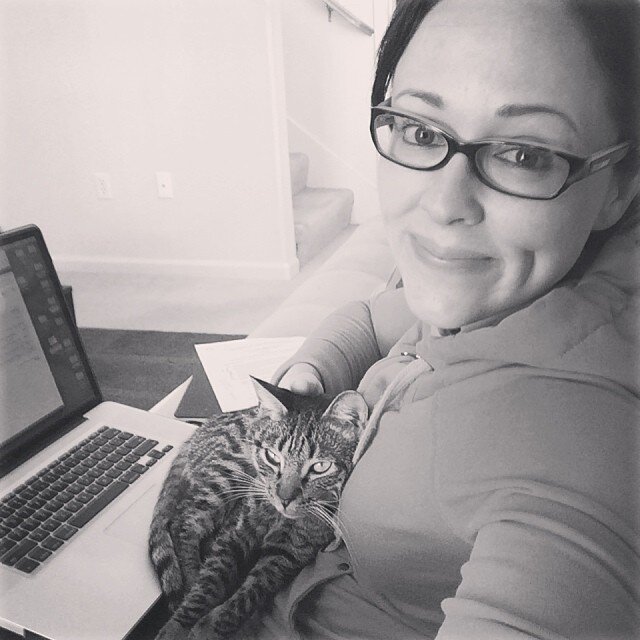Support groups are not for everyone
PHOTO: My preferred support group.
I've been in a state of brain cancer reflection this week as I prepare for two upcoming presentations related to patient engagement through digital media. (I know, I'm a nerd.)
Then I remembered this day...
The bus
About four weeks after my first brain surgery I decided to go to my first cancer support group meeting. I thought it would be a good idea to meet other people like me. Little did I know that I would meet nobody like me.
Due to continued seizure activity I was still restricted from driving a car, and I was starting to go crazy. I convinced Brett I could go on this trip alone, and I would take the bus.
I was both excited by the freedom to take the bus by myself, and also terrified I would have another seizure while out alone. I kept a tight grip on my small travel pill case filled with Ativan, ready to pop a pill at a moment's notice.
I'm sure a few passengers raised their eyebrows when a woman with a shaved head jumped out of the bus in front of the hospital.
Still, I was excited to go to my first support group meeting! I imagined we'd trade notes and complain about healthy people with day jobs. This was not the experience I had.
The general cancer support group
I sat in a circle with a social worker and about 10-15 people old enough to be my mom. The group's participants represented a diverse cross-section of the cancer community: various cancer types, retired folks, people with kids and grandkids, those still working, people in treatment, people done with treatment. Some were "cured" but were still scarred by their cancer experience and came for moral support.
"Hi, my name is Liz and I have brain cancer."
I was so excited and proud to be there, happy as fuck I made it to the hospital all by myself on a bus.
My pill case was still in my hand when I told the group about my seizures, that I lost my job, I had no medical insurance, and I could no longer drive.
I moved from face to face looking for a sign of recognition, looking for someone who knew what I was talking about, but all I got were weird stares and sad expressions.
Women had tears in their eyes and men shook their heads.
"But you are so young," they said. "What a shame."
"Seizures? Why do you have seizures?" they asked.
I realized I never wanted to go to a general cancer support group again.
On the way out I asked the social worker if there were any brain cancer groups. She handed me a list of with about 200 groups around the greater Sacramento region. Just one group focused on brain tumors.
I needed to head to the Internet to find all of you.
